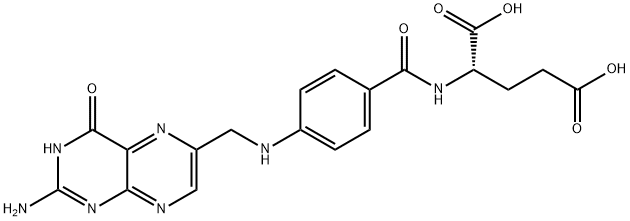Thiamine hydrochloride , Analysis standard , 67-03-8
Synonym(s):
Thiamine hydrochloride;Thiamine chloride hydrochloride;Thiamine, Hydrochloride - CAS 67-03-8 - Calbiochem;Thiamio hydrochloridum;Vitamin B?
CAS NO.:67-03-8
Empirical Formula: C12H17N4OS.ClH.Cl
Molecular Weight: 337.27
MDL number: MFCD00012780
EINECS: 200-641-8
| Pack Size | Price | Stock | Quantity |
| 250MG | RMB236.00 | In Stock |
|
| others | Enquire |
PRODUCT Properties
| Melting point: | 250 °C (dec.)(lit.) |
| Density | 1.3766 (rough estimate) |
| bulk density | 500kg/m3 |
| refractive index | 1.6000 (estimate) |
| FEMA | 3322 | THIAMINE HYDROCHLORIDE |
| Flash point: | 9°C |
| storage temp. | room temp |
| solubility | H2O: 0.1 g/mL at 20 °C, clear, colorless |
| pka | pKa 4.8 (Uncertain);9.0 (Uncertain) |
| form | Crystalline Powder |
| color | White to almost white |
| PH | 2.7-3.3 |
| Odor | sour mild bitter |
| Odor Type | bland |
| biological source | synthetic (organic) |
| Water Solubility | 1 g/mL |
| Sensitive | Light Sensitive & Hygroscopic |
| Merck | 14,9295 |
| JECFA Number | 1030 |
| BRN | 3851771 |
| BCS Class | 3 |
| Stability: | Stable. Combustible. Incompatible with strong oxidizing agents, strong reducing agents. |
| LogP | -3.93 |
| CAS DataBase Reference | 67-03-8(CAS DataBase Reference) |
| EPA Substance Registry System | Thiamine hydrochloride (67-03-8) |
Description and Uses
Thiamine Hydrochloride is the hydrochloride salt form of thiamine (vitamin B1), a vitamin essential for aerobic metabolism, cell growth, transmission of nerve impulses and acetylcholine synthesis. Vitamin B1 helps prevent various health problems including heart damage.
Thiamine hydrochloride is used to prevent and treat thiamine deficiency states, which may occur as a result of inadequate nutrition or intestinal malabsorption. It is also used for the treatment of Wernicke-Korsakoff syndrome, beriberi and thiamine deficiency related to chronic alcoholism. Thiamine hydrochloride is used as a food additive to add brothy/meaty flavor to gravies or soups. It is used also as a food supplement and flavoring ingredient with a bitter taste.
Thiamine is the water-soluble vitamin b1, required for normal digestion and functioning of nerve tissues and in the prevention of beriberi. It also acts as a coenzyme in the metabolism of carbohydrates. During processing, the higher and longer the heating period, the greater the loss. The loss is reduced in the presence of acid. Thiamine hydrochloride and thiamine mononitrate are two available forms. The mononitrate form is less hygroscopic and more stable than the hydrochloride form, making it suitable for use in beverage powders. It is used in enriched flour and is found as thiamine mononitrite in frozen egg substitute and crackers.
Safety
| Symbol(GHS) |  GHS07 |
| Signal word | Warning |
| Hazard statements | H319 |
| Precautionary statements | P264-P280-P305+P351+P338-P337+P313 |
| Hazard Codes | Xi,T,F |
| Risk Statements | 36/37/38-39/23/24/25-23/24/25-11 |
| Safety Statements | 22-24/25-37/39-26-36-45-36/37-16-7 |
| RIDADR | UN1230 - class 3 - PG 2 - Methanol, solution |
| WGK Germany | 1 |
| RTECS | XI7350000 |
| F | 3-8-10 |
| TSCA | Yes |
| HS Code | 29362200 |
| Toxicity | LD50 in mice (mg/kg): 89.2 i.v.; 8224 orally (Winter) |



